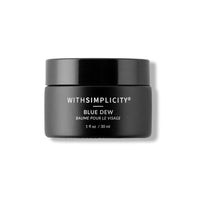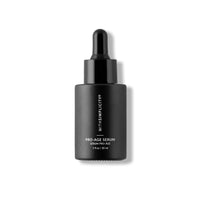Retinol. Chances are you’ve heard of this ingredient on multiple occasions, and it’s for a reason. Retinol has taken the skincare world by storm for its potent benefits when it comes to anti-aging and acne.
Now, since we are a natural skincare brand, we promote using naturally sourced retinol (plant-sourced Vitamin A); however, for the purposes of this blog, we’re going to deep dive into the properties of retinol and then explain how you can get the same (if not better) benefits by using natural sources of retinol such as Rosehip Oil or Apricot Kernel Seed Oil.
What are Retinoids?
Now, this can get a bit confusing.
Think of Vitamin A as the umbrella term used to describe a group of retinoids.
Let’s break it down a bit further.
The term “retinoid” refers to the three different forms Vitamin A (retinol, retinal, and retinoic acid) that are commonly used in skincare products to improve appearance, fight signs of aging, and reduce acne. As we mentioned before, retinoids can be either synthetic or natural. Each form of retinoid is different in terms of how potent it is.
Most topical retinoid skincare treatments can be found at drugstores while the more potent forms (both topical and oral) are reserved for serious skin conditions that are only prescribed by dermatologists. Retinols are the weakest kind of retinoids while retinoic acid is the strongest.
What’s the difference between synthetic retinol/Vitamin A and natural retinol/Vitamin A?
While retinol can come in natural forms, most of it is synthetically derived for commercial purposes in labs by mimicking its natural molecular structure. In the lab, they are able to produce varying levels of retinol (weaker or stronger) depending on the skincare need
Natural forms of retinol are typically derived from animal sources such as chicken liver, beef, and fish; however, there are plant-based sources, such as Rosehip Oil, that deliver the same benefits. (And as you may have already guessed), we only use plant-based sources for Vitamin A in our natural skincare products.
Most of the natural skincare ingredients sourced for their Vitamin A purposes contain carotenoids (like beta carotene) that our body converts into Vitamin A. Carotenoids are the different kinds of pigments found in plants, fruits, and vegetables that give them their color.
Are there health concerns with retinol?
Certain forms of retinol can pose health concerns and are carcinogens. A retinol photocarcinognic study in 2012 by the National Toxicology Program of the US National Institutes of Health found that the inclusion of retinyl palmitate or retinoic acid in skin creams can increase the likelihood of carcinogenic tumors when exposed to sunlight.
Trans retinoic acids (commonly known as Tretinoin) have been banned for cosmetic use in the European Union and are on a restricted use list in Canada.
One of our favorite resources for determining the safety of an ingredient is the EWG Skin Deep Database. Retinol and its derivatives (such as retinyl palmitate and retinyl acetate) all register as a 9 in their database (with 10 being one of the worst/most toxic scores an ingredient can receive).
According to the EWG, synthetic retinol and its derivatives are linked to:
- Sped up development of skin tumors
- Cell mutations and cell death
- Reproductive issues
Pregnant women, especially, should avoid retinol due to its reproductive issues.
What are the benefits of Vitamin A?
Now it’s time to get into the amazing benefits of incorporating Vitamin A into your daily routine!
Vitamin A as a whole is a powerful player in your skin and body’s overall health.
Internal health benefits of Vitamin A:
- Promotes normal vision
- Supports a healthy immune system
- Aids in proper organ function
- Supports reproductive health
- Aids in general body growth and development
What are the skin benefits of Retinol and Vitamin A?
If you haven’t incorporated a source of Vitamin A into your skincare routine, you’re missing out big time! While Vitamin C gets most of the spotlight these days, Vitamin A shouldn’t be overlooked when it comes to anti-aging skincare products.
Skin Benefits of Vitamin A:
- Approves the appearance of fine lines and wrinkles. Studies have shown that Vitamin A stimulates collagen production, removes damaged elastin fibers (they help with skin elasticity), and promotes the production of new blood vessels. This can all help give the face a more lifted appearance.
- Reduces Hyperpigmentation and helps with UV damage - giving your skin back its healthy, youthful glow. Carotenoids (pigments from plants that are converted by the body into Vitamin A) can help protect the skin from pollution and UV radiation. Vitamin A also helps with cell turnover, meaning it improves hyperpigmentation, acne scars, sun spots, and age spots.
- Tackles Acne. Vitamin A and retinoids exfoliate the surface of the skin - helping remove dirt, oil, and dead skin cells from clogged pores that could potentially turn into an unpleasant breakout.
What are the natural sources of Vitamin A for skincare?
If you’re looking to dive into a natural skincare routine, then switching out retinol for plant-based forms of Vitamin A should be your first task!
You can either get Vitamin A from non-vegan, animal sources, or you can look for its other source on ingredient lists, carotenoids, which come from plants and include beta-carotene. Your body is able to convert beta-carotene into Vitamin A.
Look for ingredients such as:
- Rosehip Oil. Pure rosehip oil contains Vitamin A and can benefit your skin by reducing the appearance of wrinkles, treating acne, and reversing sun damage.
- Pumpkin Oil or Powder. Pumpkin contains beta-carotenes (which your body converts into Vitamin A), and it also contains pure Vitamin A, and Vitamins B, D, & E. It’s also used in natural skincare products for its high levels of Zinc.
- Apricot Kernel Seed Oil. This carrier oil contains high levels of both Vitamin A and Vitamin E. It supports the skin’s protective barrier and improves the appearance of fine lines and wrinkles by promoting cell regeneration.
- Buriti. This is a tree native to the amazonian forests that is nicknamed the “tree of life”. It is full of Pro-Vitamin A and rehydrates dry skin.
- Carrot Oil. (Note that we didn’t say Carrot seed oil). Carrot oil (the carrier oil) is rich in Vitamin A and helps the skin appear youthful.
- Camellia Oleifera Seed Oil. This amazing dry oil is full of Vitamins A, C, D, and E. It also contains a high amount of oleic acid which is great at replenishing moisture.
- Cranberry Seed Oil. Contains a high amount of Vitamin A and provides great relief for dry, itchy skin.
- Sunflower Oil. Contains high levels of Vitamin A, B, D, and E. It deeply nourishes dry skin and helps with conditions such as psoriasis and eczema.
Which withSimplicity products contain Vitamin A?
- Blue Dew
- Pro-Age Serum




